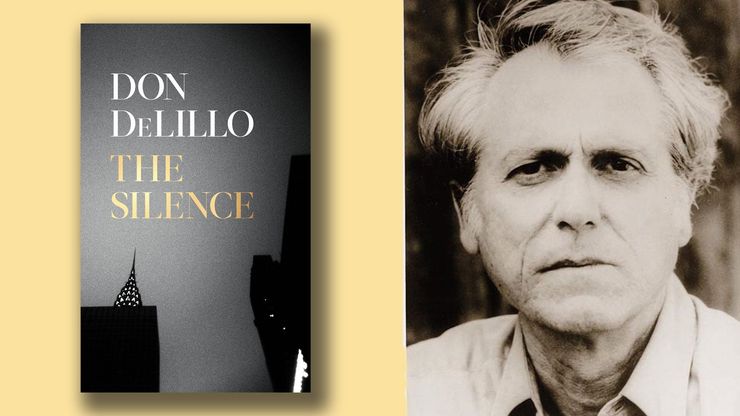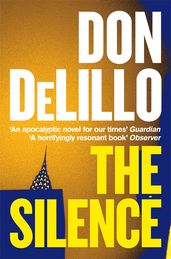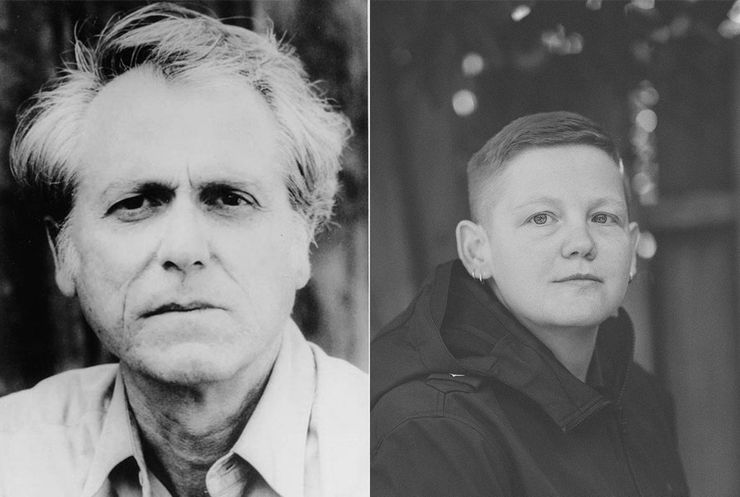The wit and wisdom of Don DeLillo
A selection of our favourite quotes from Don DeLillo, one of America's finest novelists.

Don DeLillo, the award-winning author of novels including White Noise, Underworld and The Silence, has written on subjects as diverse as nuclear war, death, language and humanity. Here we share some of the wisest, funniest and most insightful quotes from Don DeLillo's books and interviews.
If you're wondering where to start with the works of Don Delillo, don't miss our beginner's guide.
Don DeLillo on . . .
White Noise
‘In White Noise in particular, I tried to find a kind of radiance in dailiness. Sometimes this radiance can be almost frightening. Other times it can be almost holy or sacred . . . Our sense of fear—we avoid it because we feel it so deeply, so there is an intense conflict at work . . . I think it is something we all feel, something we almost never talk about, something that is almost there. I tried to relate it in White Noise to this other sense of transcendence that lies just beyond our touch. This extraordinary wonder of things is somehow related to the extraordinary dread, to the death fear we try to keep beneath the surface of our perceptions.’
An interview with Antony De Curtis for Rolling Stone, 17 November 1988.
‘‘ . . . the world of White Noise . . . There's a connection between the advances that are made in technology and the sense of primitive fear people develop in response to it. In the face of technology everything becomes a little . . . atavistic.'’
New York Times, 19 May 1991
‘I never set out to write an apocalyptic novel. It's about death on the individual level.Only Hitler is large enough and terrible enough to absorb and neutralize Jack Gladney's obsessive fear of dying—a very common fear, but one that's rarely talked about. Jack uses Hitler as a protective device; he wants to grasp anything he can.’
New York Times Book Review, 13 January 1985
His reluctance to do interviews
‘It's my nature to keep quiet about most things. Even the ideas in my work. When you try to unravel something you've written, you belittle it in a way. It was created as a mystery, in part. Here is a new map of the world; it is seven shades of blue. If you're able to be straightforward and penetrating about this invention of yours, it's almost as though you're saying it wasn't altogether necessary. The sources weren't deep enough. ’
An interview with Tom LeClair in 1979
On the writer and writing
‘The writer has lost a great deal of his influence, and he is situated now, if anywhere, on the margins of the culture. But isn't this where he belongs? How could it be any other way? And in my personal view this is a perfect place to observe what's happening at the dead center of things. I particularly have always had a kind of endgame sensibility when it comes to writing serious fiction. Before I ever published a novel, this is how I felt about it—that I was writing for a small audience that could disappear at any minute, and not only was this not a problem, it was a kind of solution. It justified what I wrote and it narrowed expectations in a healthy way. I am not particularly distressed by the state of fiction or the role of the writer. The more marginal, perhaps ultimately the more trenchant and observant and finally necessary he'll become. ’
Hungry Mind Review, 1997
'When my head is in the typewriter the last thing on my mind is some imaginary reader. I don't have an audience; I have a set of standards.'
Paris Review, 1993
His working day
‘I work in the morning at a manual typewriter. I do about four hours and then go running. This helps me shake off one world and enter another. Trees, birds, drizzle—it's a nice kind of interlude. Then I work again, later afternoon, for two or three hours. Back into book time, which is transparent—you don't know it's passing. No snack food or coffee. No cigarettes—I stopped smoking a long time ago. The space is clear, the house is quiet. A writer takes earnest measures to secure his solitude and then finds endless ways to squander it. Looking out the window, reading random entries in the dictionary. To break the spell I look at a photograph of Borges, a great picture sent to me by the Irish writer Colm Tóibín. The face of Borges against a dark background—Borges fierce, blind, his nostrils gaping, his skin stretched taut, his mouth amazingly vivid; his mouth looks painted; he's like a shaman painted for visions, and the whole face has a kind of steely rapture. I've read Borges of course, although not nearly all of it, and I don't know anything about the way he worked—but the photograph shows us a writer who did not waste time at the window or anywhere else. So I've tried to make him my guide out of lethargy and drift, into the otherworld of magic, art, and divination.’
Paris Review 128, Fall 1993
Collecting material for his novels
‘I'm always keeping random notes on scraps of paper . . . Then I clip these together. I'll look at them in, say, three weeks' time, and see what I've got. I've never made an outline for any novel that I've written. Never.’
Observer, 20 August 2010
Readers
‘The best reader is one who is most open to human possibility, to understanding the great range of plausibility in human actions. It's not true that modern life is too fantastic to be written about successfully. It's that the most successful work is so demanding. The novel's vitality requires risks not only by [writers] but by readers as well. Maybe it's not writers alone who keep the novel alive but a more serious kind of reader.’
New York Times, 10 October 1982
Character
‘A character is part of the pleasure a writer wants to give his readers. A character who lives, who says interesting things. I want to give pleasure through language, through the architecture of a book or a sentence and through characters who may be funny, nasty, violent, or all of these. But I'm not the kind of writer who dotes on certain characters and wants readers to do the same. The fact is every writer likes his characters to the degree that he's able to work out their existence. You invent a character who pushes his mother down a flight of stairs, say. She's an old lady in a wheelchair and your character comes home drunk and pushes her down a long flight of stairs. Do you automatically dislike this man? He's done an awful thing. But I don't believe it's that simple. Your feelings toward this character depend on whether or not you've realized him fully, whether you understand him. It's not a simple question of like or dislike. And you don't necessarily show your feelings toward a character in the same way you show feelings to real people.’
Paris Review 128, Fall 1993
Love
'I would spend the rest of my life turning to speak to her.'
White Noise
Knowledge
'A fact is innocent until someone wants it; then it become intelligence.'
Libra
Stories
'Stories are consoling, fiction is one of the consolation prizes for having lived in the world.'
Conversations with Don Delillo
Death
'I've got death inside me. It's just a question of whether or not I can outlive it.'
White Noise
Holidays
'That's why people take vacations. No to relax or find excitement or see new places. To escape the death that exists in routine things.'
White Noise
Sharing too much
'If you reveal everything, bare every feeling, ask for understanding, you lose something crucial to your sense of yourself. You need to know things that others don't know. It's what no one knows about you that allows you to know yourself.'
Point Omega
Time
'Everything is barely weeks. Everything is days. We have minutes to live.'
Cosmopolis
Talent
'Talent is more erotic when it's wasted.'
Cosmopolis
Perspective
'What you see is not what we see. What you see is distracted by memory, by being who you are, all this time, for all these years.'
Falling Man
Nature
'When birds look into houses, what impossible worlds they see.'
The Body Artist
Music
'Music was a liquid presence... invisible wine for the ear to taste.'
Great Jones Street
Fire
'The smoke alarm went off in the hallway upstairs, either to let us know the battery had just died or because the house was on fire.'
White Noise
Technology
'You could put your faith in technology. It got you here, it can get you out. This is the whole point of technology. It creates an appetite for immortality on the one hand. It threatens universal extinction on the other.'
White Noise
Fear
'How strange it is. We have these deep terrible lingering fears about ourselves and the people we love. Yet we walk around, talk to people, eat and drink. We manage to function. The feelings are deep and real. Shouldn't they paralyze us?'
White Noise
Dreams
'It is so much simpler to bury reality than it is to dispose of dreams.'
Americana
The Silence
by Don DeLillo
Set on Super Bowl Sunday 2022, this compelling novel from Don DeLillo about what happens when an unpredictable crisis strikes is a profoundly moving examination of what makes us human. A retired physics professor and her husband are hosting a dinner party. One of her former students has already arrived, but another couple has been delayed by a dramatic flight from Paris. As they wait for kick-off, something happens that severs the digital connections in our lives. This is an illuminating and essential guide to our navigation of a bewildering world.



